Note: The product reviewed is part of an ongoing Kickstarter campaign, and may be incomplete. The project may change before it hits the market, and so this review should not be taken as a comment on the quality of any complete products. We will do our best to update this review to reflect changes in the product, but we may lag behind.
Introduction
The first product review for Kicking the Habit – our spin-off Kickstarter focused article/podcast series– is Dubious Alliance, a fantasy bluffing card game by independent designer Brandon Raasch. We’ve already had a quick look at Dubious Alliance’s ongoing Kickstarter campaign when it was our campaign of the day, but today we are going to give a detailed review of this project. We at Board Gamers Anonymous had the opportunity to play a demo copy of this game, and this review will walk you through the major features of the game to help you decide whether you should fund it.
The Short of It
Name: Dubious Alliance
Designer: Brandon Raasch
Producer: Brandon Raasch/Independent
Genre: Fantasy bluffing card game
What you’ll pay: $20 (base game) to $180 (stretch goals + add your own card to the base game)
You have until: June 25th (2014-06-25)
Verdict: Kick Back and Wait
Synopsis: Dubious Alliance is a fantasy RPG themed bluffing card game where players take the role of members of a Band of Orcs (an in-game representation of a real-world monster metal band) as they compete for prestige while cooperating just enough to survive. This game has a good heart, but the current edition is held back by some sloppy editing, iffy balance, and messy rules. For now, I suggest you kick back and watch until we see these issues resolved.
Setting up the Game
Set up is simple – each player takes one of the character cards included in the game. Your character cards determines three traits that are very important to how you should play the game. The red number is the survival score, which tells you how resilient an orc is to damage. The blue number is the prestige goal, which tells you how much glory an orc needs to gather to win. The special ability is the text beneath the ‘player card’ title.

Winning and Losing
To win the game, you need to collect prestige points equal to or greater than the prestige before any other player does so. However, if any player’s survival score is dropped below zero, everyone loses. Every orc has to survive the trip if you are to succeed at your quest. Modifying these numbers is a huge part of what the cards in the main deck do, but the scoring system is simple and intuitive, which makes keeping track of how your orc is doing a relatively easy task.
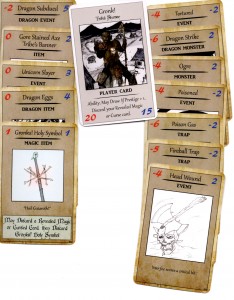
Game Play
At the beginning of the trading phase, players are dealt a number of cards from a deck consisting of a wide variety of items, traps, and enemies. These cards effect your survival and prestige scores, have special effects, or sometimes both.

Once the hands are drawn, we enter the trading phase, which is where the heart of the game lies. During each round of the trading phase, players offers one face-down card in trade to others without revealing it. Players are free (and encouraged) to lie about what they are trading when it benefits them. No two players are allowed to directly trade more than once per round. However, you can trade the same card multiple times in one round, allowing you to use intermediaries. Players may choose not to trade any cards at all, but if they elect not to trade twice in a row – they will be forced to take the first offer made next round. This is a nice place to give them that fireball trap that has been in your hand.
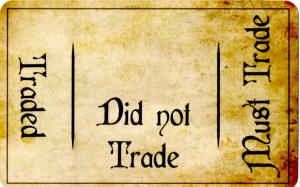
After trading has been completed, each player activates the card in front of them and resolves its effects. If the card has a survival and prestige value, it is lined up beneath your character and considered an ‘active cards’. All other cards are activated and resolved immediately.
The Good
- The simple bluffing/trade mechanic in Dubious Alliance would get stale pretty quickly, but the need for each player to ensure that others survive without letting them get ahead in prestige adds a lot of nuance to the trading strategy.
- Likewise, Dubious Alliance’s forced trade mechanic and the requirement that you switch trade partners makes sure that the bargaining remains dynamic, rather than locking in to fixed patterns of trade.
- The rules for Dubious Alliance are relatively simple, and the game plays quickly and easily once you’ve learned them.
- The dual survival/prestige system is very easy to keep track of, which means scoring is an easy task.
- Dubious Alliance can seat anywhere from three players to however many character cards you have, which gives the base set an impressive seven player limit.
- Finally, Dubious Alliance has a unique feel which helps distinguish itself from the flood of games trying to capture the fantasy theme. It is a breath of fresh air.
The Bad
- There appear to be some balance issues between the player cards, and possibly within the deck itself. This is especially true for those player cards that have low prestige goals. These cards are supposed to be made weaker by giving them a lower health than the other player characters, but the requirement that everyone survive makes that a competitive advantage. Characters with low health need to be coddled by the tougher members of the party, and can utilize what Brandon (in one of our talks about the game) called the ‘suicide strategy’. Essentially, they hold themselves hostage to get the best cards. The result appears to be a serious power imbalance.
- As you can see above, the card art is inconsistent, ranging from clean and dramatic to some pretty rudimentary sketching. Even though bad art doesn’t usually bother me, I find the shifting graphics disrupts the ability of the game to build a strong feeling of theme.
- There are a number of editing issues throughout the game that makes it much harder to play than it ought to be. Card text is hard to read, the rule set is disorganized, key words that indicate special rules are not easily identifiable, etc.
Update: The issue with card text has been entirely fixed, as you can see in the below illustration of the evolution of the cards over time.
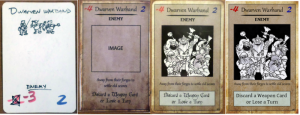
- The cards aren’t quite the quality that I would want from a game where the only components are cards that will be shuffled around, slid around the table face down, and the like. The cards are also a little slim at 57 by 89mm. A 63 by 88mm size would better serve the game, making text easier to read and sleeve (which will be a necessity for a game involving passing cards around face down on the table).
Recommendation
My current recommendation is to sit back and watch Dubious Alliance to see how it progresses. The game itself has a lot of potential, but the current draft isn’t quite up to snuff. There are a few changes that I think would each considerably improve the game, which I list below in order from easiest to most difficult to fix.
First, pretty much all of the text in the game needs to be revisited, but this will mostly be a matter of editing to make the game easier to pick up and play. The card and rule text needs to be made more direct, and more clearly laid out. Keywords on cards should be bold for easy reference, the rules need to be linear and cleanly laid out, and complicated phrases in card text need to be replaced by keywords. Luckily, this is a relatively easy thing to change at this point, and Brandon tells me that he is already addressing a number of these issues. With these resolved, the game would get much easier to play.
Next is a trickier issues – the card balance, which may require revisiting the core mechanics themselves. Brandon will need to find some way to undermine the all-around competitive advantage that the little guys seem to have. Brandon and I talked some about including some alternate win conditions, and this might end up being an easy fix. However it is addressed, low health needs to be an individual liability if it is going to balance the advantage of a low prestige goal.
Finally, there are the concerns relating to the card art an materials, which it may not be practical to resolve. From what I understand, changing Dubious Alliance’s card art to a consistent style is not likely to happen at this point – for both philosophical and economic concerns. If you are the kind of person for whom card art can make a game sink or swim, you are going to want to look elsewhere. For me, it was mildly irritating, but it would ruin an art-driven players experience all together. Likewise, I’m not sure how feasible it would be to change up card materials at this point, and I suspect this may not be possible.
As it is, this campaign is definitely worth taking a look at, though art-centered players had better just keep on moving. However, I think I would hold off on pledging until I see that some of the issues with the early draft of the game are resolved. I suspect that Brandon will be able to fix most of the text concerns, and hopefully fine tune the balance a bit (maybe even adding some more complexity) – in which case I think the game would be a good choice for anyone looking for a short, lighthearted, party game with some novel mechanics and a familiar theme. Dubious Alliance won’t ever be a game for everyone, but with some revision it would be a great choice for someone looking to add a simple fantasy themed game with a twist. On the off chance the card art and materials get updated, Dubious Alliance could move right to the top of my list.
But for now, kick back and watch what happens.
As always, if you have any comments, questions, or suggestions – kick them my way in the comments section.


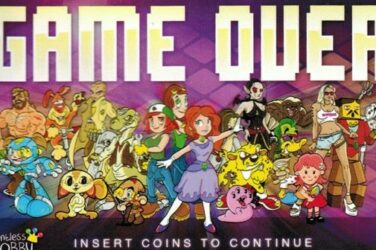
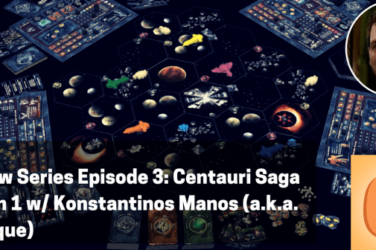
Show Comments